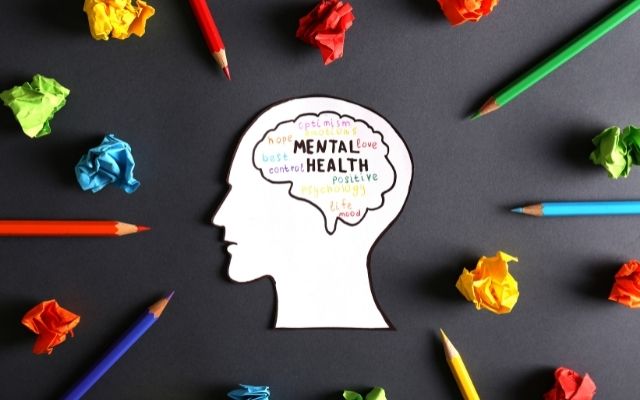Your Brain
When a person struggles with sex, masturbation or porn addiction, there are a lot of different things going on all at once. In this blog, I want to talk to you about your brain activity when you partake in a sexual behavior or problematic sexual experiences so that you can fully understand how a behavioral addiction work and what’s causing your brain and body to act and feel a certain way.
There is a chemical in your brain called dopamine.
Dopamine is a neurotransmitter which means it sends signals from one cell to another.
When a person engages in a behavior that is followed by a reward it activates the dopamine pathway.
The purpose of the pathway is to remember the reward motivated behavior.

When there is pleasure involved, your brain remembers this and each time you come upon a situation where the dopamine pathway was activated, your brain will release more dopamine before you engage in that behavior.
So for example, the first time you masturbate, view porn, or have sex you don’t know beforehand whether or not the experience was going to feel good.
Once you start engaging in the behavior, the experience feels good so the dopamine pathway is opened up and starts sending pleasure signals from one cell to another.
Fast forward to the next experience. Before you even engage in the activity you start thinking about the activity itself. Your brain has remembered this reward motivated behavior so the dopamine pathway has already opened up sending pleasure signals from one cell to another.
Before you know it, certain things will trigger the release of dopamine without you having to even think about it which then forces you to think about it when the dopamine pathway is opened up.
This is called a trigger.
The problem with all of this is that if you start to chronically engage in an activity, your brain is constantly flooded with dopamine and in an order to regulate, the dopamine receptors get smaller.
When your brain has too little dopamine then it feels demotivated and this is where you may start to feel sad, lonely, depressed, or unmotivated and it can affect your relationship with your family and friends and life just feels down and grey.
The only way to get out of that feeling is to get more dopamine to the brain so you engage more in that activity despite the negative consequences.
Similar to Substance Use Disorder
This is also very similar to what happens to the brain when people struggle with substance addiction or drug or alcohol addiction. Just because you aren’t putting a substance into your body, doesn’t mean you can’t be addicted to something. Sex, masturbation and porn addiction is just as serious as any addictive substance. The brain doesn’t know the difference.
If you’re feeling this way, it’s not your fault. Like any addiction, whether it’s an addiction to porn or a gambling addiction it’s not a matter of self control and you can now see why there is science backing the fact that an addiction is a brain disease. My students often express feelings of guilt or feelings or shame but I am here to tell you that you should not feel that way. You didn’t ask for this, these are just the cards you’ve been dealt.
You can Reverse the Effects
This is good news because you can literally change your brain by not engaging in the activity. The brain is what is called plasticity which means it can change based upon your environment and the information that you take in. Every person, no matter what their background is or how deep into their sex, masturbation or pornography addiction they are, has the ability to get their brain back to its baseline, meaning, where it was before it all started.
When a person enrolls in this course they will get all the tools they need to train their brain so that they can feel pleasure from other sources and the way to do that is to be action focused and give their brain time to heal.
Here at CSPMA, we focus on helping people with their physical health, mental health and social circles. Life with an addiction isn’t easy but when you focus on your relationship with your own self first and your daily life, the healing process begins. CSPMA is not therapy, it’s a way for you to gain knowledge so that you can have all the tools you need to take control of your life. While some of our users do well with just taking this course, others find it helpful to take this course in conjunction with a mental health professional or therapy they may be receiving for other mental health disorders such as depression or anxiety.
Sex, Masturbation and Porn Addiction
Sex, masturbation and pornography addiction are very serious addictions and the symptoms can vary from person to person. For example, someone who struggles with excessive porn watch they may find their relationship with porn to be troubling. They might be hiding out in their own private space for hours watching pornographic material. Signs of porn addiction can be anything from loss of control to experiencing withdrawal symptoms when not viewing pornography or maybe their sex life is suffering due to excessive pornographic material or content whereas, someone with a sexual addiction may find themselves partaking in risky sexual behaviors, sexual activities that damage their intimate relationships or perhaps they struggle with a hypersexual disorder. Over time the negative effects of sex addiction will start to surface and can contribute to things like sexual dysfunction or mental disorders.
Is a Diagnosis Necessary?
A behavioral addiction such as porn addiction can be difficult to diagnosis. Most people who find pornography addictive don’t immediately come forward due to feelings of shame or embarrassment. Sex addicts don’t always know their behavior is wrong until something catastrophic happens. Addictive behavior isn’t linear either. Here at CSPMA, we want to help reduce the negative effects of porn addiction to help you improve your quality of life. If you struggle with a sexual dysfunction or withdrawal symptoms when not engaging in a sexual behavior, just know that’s normal. When you reduce your sexual encounters or pornography usage you are changing your brain structure.
Your Mental Health
Sexual addictions can cause an array of mental health issues. These mental health conditions can range from impulse control disorder to depression or anxiety or consumption or inappropriate or problematic pornography or sexual images. Sometimes these behaviors stem from past sexual abuse or always being in distress.

If you have mental health issues it’s important to talk to medical professionals or a healthcare professional. Excessive porn, sex or masturbation or repetitive behaviors can bleed into other areas of real life and can contribute to unhealthy relationships or relationship issues whether that’s a romantic relationship, sexual relationship or relationship with a friend or family member.
Treatment Options
Sex, masturbation and porn addiction treatment isn’t something to take lightly. Lack of control or loss of control are two main symptoms our students report. When you enroll in our course we will help you gain back that control by using a holistic approach which will cause your brain chemistry to change back to its baseline. You may experience withdrawal symptoms at first but overtime with time and dedication to your physical health, mental health and social circles you will be able to overcome this. When our students implement the techniques learned here at CSPMA on a regular basis they start to experience the positive effects within just a few weeks. Treatment for porn addiction is slightly different than treatment for sex or treatment for masturbation but no matter which one you struggle with, the course will benefit you. If you want to fix your life or your relationship issues that stem from a sexual behavior disorder or excessive consumption of pornography then we recommend enrolling right away. You don’t need an official diagnosis to take this course.


 By submitting your contact details, you are providing your data to Center For Sex, Porn And Masturbation Addiction who may contact you.
By submitting your contact details, you are providing your data to Center For Sex, Porn And Masturbation Addiction who may contact you.